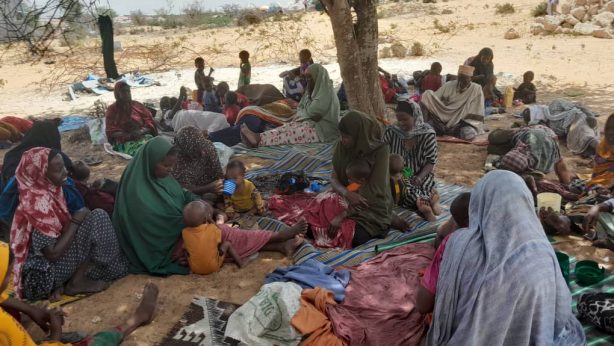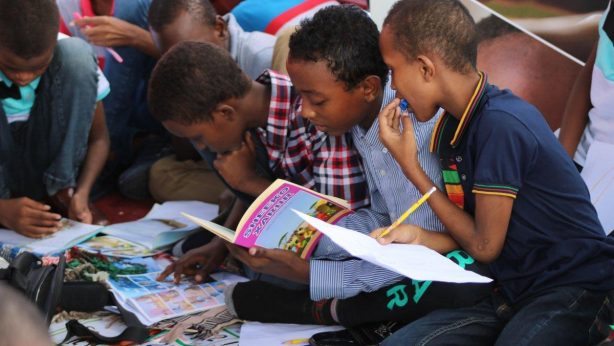Water Crisis Deepens for Somali Households, Disability, and Displaced People in Mogadishu Camps.
In the heart of Mogadishu, Somalia, a silent crisis is unfolding that threatens the lives and well-being of countless households, particularly those with disabilities, and displaced individuals living in overcrowded camps. Access to clean and safe water, a fundamental human right, remains a luxury for many in the capital city. This blog sheds light on the dire situation of water scarcity in Mogadishu’s camps and the critical need for immediate action.
The Severity of the Crisis
Water scarcity has long been a concern in Somalia due to a combination of factors, including droughts, conflicts, and inadequate infrastructure. However, the situation has worsened considerably in recent years, hitting marginalized groups like people with disabilities and displaced populations the hardest.
- Disability Challenges: The lack of access to clean water disproportionately affects individuals with disabilities. Many are unable to travel long distances to fetch water, and the limited water sources are often not equipped to accommodate their needs. This exclusion exacerbates the already significant challenges faced by disabled individuals in Somali society.
- Displaced Populations: Mogadishu is home to numerous displacement camps, where internally displaced persons (IDPs) have sought refuge from conflict and insecurity in other parts of the country. These camps are overcrowded, with inadequate infrastructure and sanitation facilities, making access to clean water a constant struggle.
The Consequences
The dire lack of access to clean water in Mogadishu’s camps has severe consequences for the affected populations:
- Health Risks: Contaminated water sources expose people to waterborne diseases such as cholera, dysentery, and typhoid. Children and the elderly, who are particularly vulnerable, suffer the most from these diseases.
- Economic Hardship: Families are often forced to spend a significant portion of their limited resources on purchasing water from unreliable sources. This financial burden further perpetuates poverty and vulnerability.
- Gender Disparities: Women and girls are typically responsible for collecting water for their families. In the absence of accessible water sources, they face increased risks, including harassment and violence during their water-fetching journeys.
- Displacement Dilemma: Displaced individuals often fled their homes to escape violence and insecurity, only to find themselves in equally perilous conditions in the camps. The lack of water compounds their challenges and hampers their prospects for a better future.
The Way Forward
Addressing the water crisis in Mogadishu’s camps requires immediate and coordinated efforts from both national and international actors:
- Infrastructure Investment: Investments in water infrastructure, such as wells, boreholes, and water purification systems, are urgently needed to provide reliable access to clean water within the camps.
- Inclusive Solutions: Ensuring that water sources and facilities are accessible to people with disabilities is essential for promoting inclusivity and equity.
- Hygiene Education: Promoting hygiene practices and educating communities on the importance of clean water and sanitation can help reduce the spread of waterborne diseases.
- Humanitarian Assistance: The international community must continue to provide humanitarian aid to alleviate the suffering of those affected by the crisis. Donor support is crucial for funding relief efforts.
- Conflict Resolution: Addressing the root causes of displacement and conflict is essential for creating a lasting solution to the crisis. Diplomatic and peace-building efforts should be prioritized.
Conclusion
The water crisis in Mogadishu’s camps is a pressing humanitarian issue that demands immediate attention. The lack of access to clean water threatens the health, dignity, and future prospects of countless Somali households, particularly those with disabilities and displaced individuals. It is imperative that governments, organizations, and individuals come together to provide essential relief, invest in long-term solutions, and work toward lasting peace and stability in Somalia. Water is not just a necessity; it’s a basic human right that everyone should be able to enjoy.


